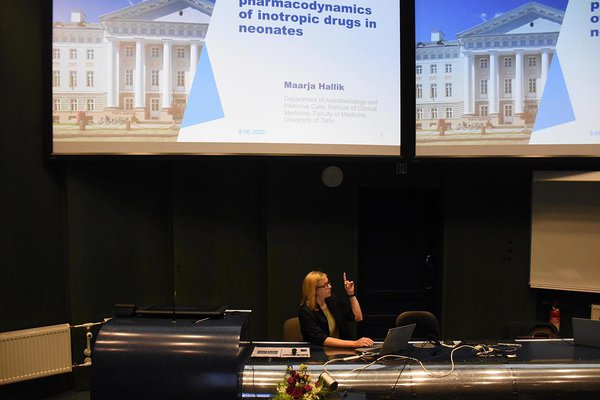Supervisors:
Professor of Pediatric and Neonatal Intensive Care Tuuli Metsvaht (dr. med. (Medicine), Institute of Clinical Medicine, University of Tartu
Professor of Anesthesiology and Intensive Care Joel Starkopf (dr. med. (Medicine), Institute of Clinical Medicine, University of Tartu
Opponent:
Professor Saskia de Wildt (PhD), Radboud University Medical Center, Holland.
Summary
A lot of medications used in neonates are insufficiently studied in this vulnerable population. Often the dosing schemes and expected effects are extrapolated from adult or paediatric studies. Physiological changes within hours, days and weeks after birth affect the distribution, elimination and effect of medications in ways not predictable from adult and paediatric data. The present research analysed dosing, concentration and effect relationships of two cardiovascular medications – dobutamine and milrinone – in neonates in clinical situations where they are frequently used. Nonlinear mixed-effects modelling was used to describe the pharmacokinetic and pharmacodynamic processes with an evaluation of interindividual variability and residual variability occurring during treatment and data collection. The effects of dobutamine on heart rate and blood pressure occur with relatively low concentrations and are saturable, contrarily the effect on cardiac output is linear throughout the studied dose- and concentration range or is saturable at higher concentrations. Based on the pharmacokinetic data, milrinone dosing regimen was suggested for preterm neonates undergoing patent arterial duct closure operation and at risk of postoperative respiratory and cardiac function deterioration. Additional to developmental changes the pharmacokinetics and pharmacodynamics of medications in neonates may be affected by the critical illness and intensive care, thereby the most valuable pharmacological data comes from the studies conducted in the particular situations where the effects are expected.


41 replies